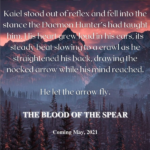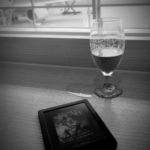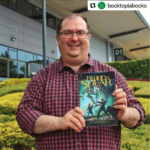To begin with why don’t you tell us a little bit about yourself – where were you born? Raised? Schooled?
– Born in Glasgow, Scotland. Raised in Glasgow, Scotland. Schooled in Glasgow, Scotland. Well, mostly, apart from a few years living in Ayrshire. Or, as I like to think of it, north of the Ice Wall amongst the WIldlings.
What did you want to be when you were twelve, eighteen and thirty? And why?
– At twelve, I pretty much wanted to be Arthur C. Clarke. Actually, I also wanted to shave my head and wear white robes like the Talosian in the original Star Trek. That’s when I started thinking about writing since I was already sucking up science fiction books like a Roomba in a universe of dust-bunnies. By eighteen, I’d decided I wanted to be Jimmy Page (guitarist in Led Zeppelin) because I’d just moved back to Glasgow from darkest Ayrshire and discovered rock music. The writing took a back seat for a while. But in my mid-twenties, I’d had a kind of Damascene moment and started writing again. By the time I was thirty I’d had a couple of short stories published in pro sf and fantasy magazines.
What strongly held belief did you have at eighteen that you do not have now?
– That logic and reason will always win any argument. It took a lot of bumps to work out logic and reason are the last things a lot of people ever want to hear.
What were three works of art – book or painting or piece of music, etc – you can now say, had a great effect on you and influenced your own development as a writer?
– There’s no three things. It’s everything, all at once, poured into a single Gary Gibson-shaped mould. But if you kidnapped my dog – that is, if I had a dog – and showed me a live stream of it held over a bucket of piranhas and demanded I answer, I’d pick: Marooned in Realtime by Vernor Vinge, Roadside Picnic by Boris and Arkady Strugatsky, and the Gaia trilogy by John Varley. If I’ve got any influences, it’s those three. Probably.
Considering the innumerable artistic avenues open to you, why did you choose to write a novel?
– It’s a falsity to say there are ‘innumerable’ artistic avenues open to anyone. Well, there are, but whether you’re actually any good at them is another matter. I “chose” to write a novel because it turns out that’s what I’m good at it, it’s fun, and there’s pretty much nothing else I can think of I might possibly want to do with my life.
Please tell us about your latest novel Extinction Game
– I couldn’t just sit down and write a straight post-apocalyptic book, because it’s been done so many times. I needed something extra. A classic post-apocalyptic trope is the Last Man on Earth story, so since I’d been reading up on theories regarding the idea we live in a multiverse of infinite parallel realities, it made sense that there must also be an infinite number of universes in which different people are the last man or woman on Earth.
From there it didn’t take much more than a hop or skip to figure out an interesting story lay in bringing those people together through some technology that allows travel from one alternate reality to another. Why write a book about one world-destroying apocalypse, when you can write a book that by definition includes every single possible apocalypse?
What do you hope people take away with them after reading your work?
– An immediate desire to send me the entire contents of their bank accounts and the deeds to their homes. I’m not saying I planted any post-hypnotic suggestions in my books or anything, but…
Whom do you most admire in the realm of writing and why?
– Anyone who writes what they choose to write, regardless of what others think.
Many artists set themselves very ambitious goals. What are yours?
– To produce a book a year; to always improve; to maintain a healthy level of self-criticism that allows me to grow as a writer; to be ambitious, in the sense of never resting on my laurels; to surprise, entertain and delight; to be raised to Godhood and worshipped by milli…ok, maybe not that last one.
What advice do you give aspiring writers?
– To understand that what appears to be failure is instead an opportunity to define and build on your true strengths.





